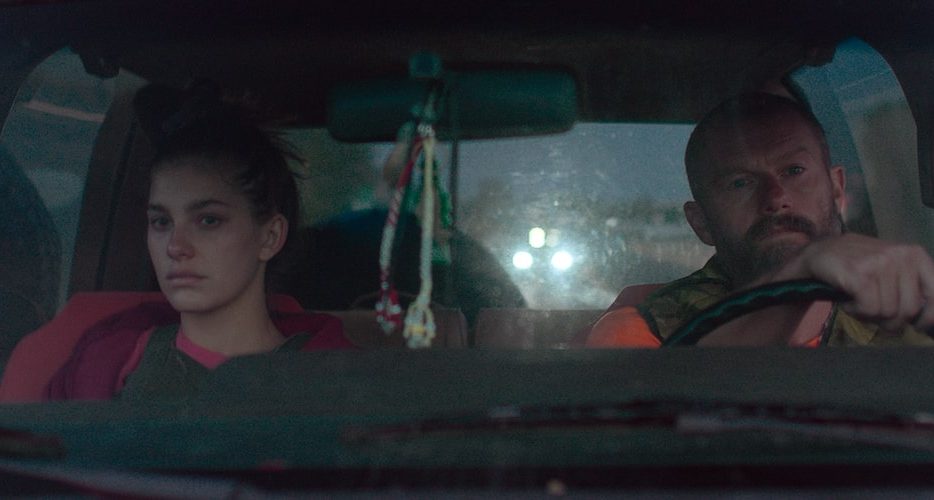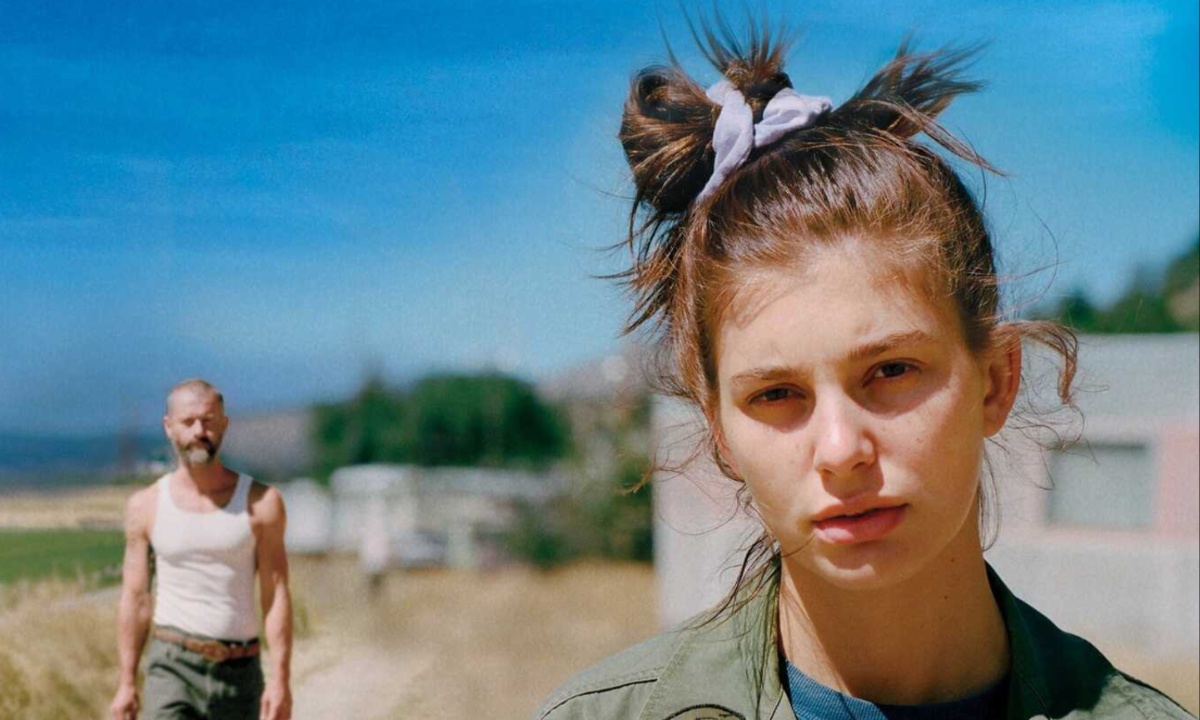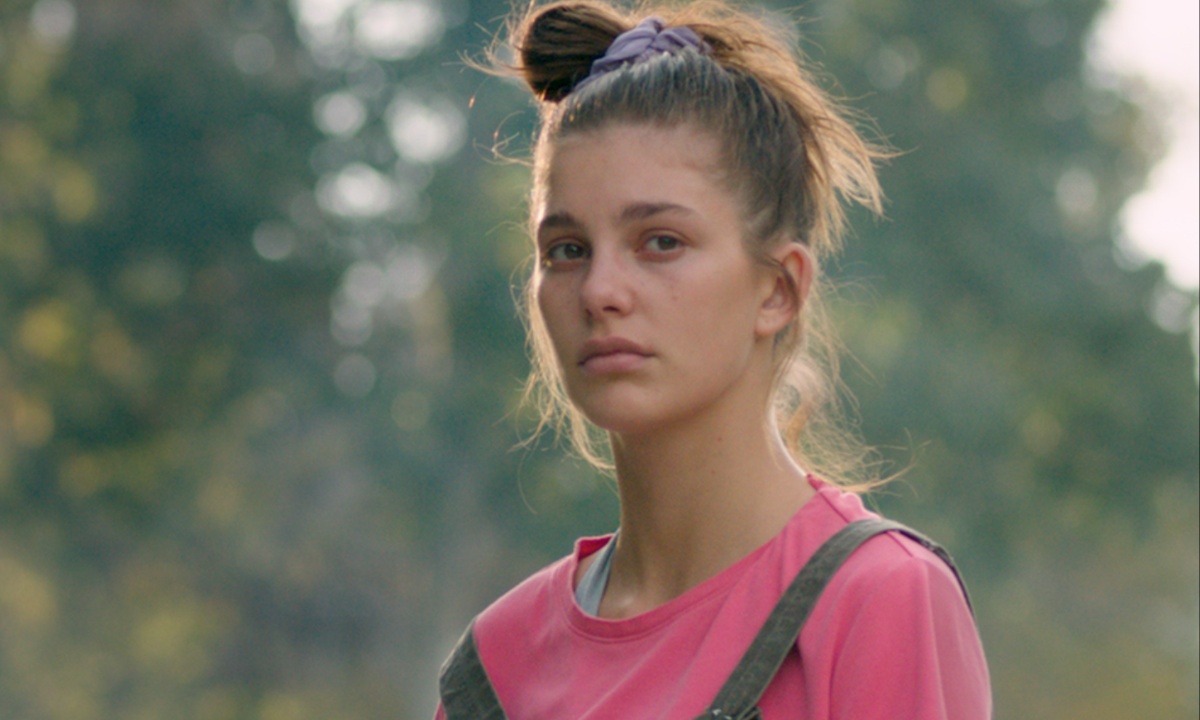In Mickey and the Bear, Hank, a former soldier suffering from PTSD and a painful addiction to painkillers, finds his life spiraling out of control. His daughter, Mickey, nearly 18, becomes his primary caregiver, stepping into a role typically filled by the parent. As Hank’s physical and mental health decline, Mickey faces the burden of managing their household, handling her father’s medication, and taking on responsibilities well beyond her years.
Their relationship evolves into one of emotional dependency and manipulation, with Hank increasingly relying on Mickey as his emotional crutch. This dynamic forces Mickey to navigate her own desires for independence while dealing with the complexities of her father’s needs.
Directed and written by Annabelle Attanasio, Mickey and the Bear offers a fresh and thoughtful take on the coming-of-age genre. The film explores themes of escaping an environment that keeps pulling you back, but its emotional depth and nuanced characters set it apart from other films with similar themes.
While the story is rooted in familiar struggles, such as trauma, addiction, and the search for freedom, Attanasio’s careful direction and the strong performances of the cast bring a unique emotional resonance to the film. The supporting characters, though not the central focus, are well-crafted, adding layers to the story without feeling one-dimensional.

Mickey’s Journey Toward Self-Sufficiency
Though Mickey is only on the cusp of adulthood, she is already forced to take on significant responsibilities due to her father’s deteriorating health. She works part-time at a taxidermy shop and manages their household, including Hank’s medication regimen. The emotional weight of caring for her father is immense, as Hank’s mood swings—from anger to apathy to fleeting moments of kindness—make him unpredictable and difficult to deal with.
Despite this, Mickey demonstrates resilience, striving to build a future for herself while trying to maintain a sense of normalcy amidst the chaos. Her journey toward self-sufficiency is both a necessity and a source of inner strength, even as her father’s needs threaten to overwhelm her.
As Mickey nears adulthood, she faces a pivotal moment in her life. She must choose between two futures: staying in Anaconda with her boyfriend, Aron, or leaving for college to escape her father’s influence and build a new life. Both paths represent different versions of freedom. Aron, also yearning to break free from their small-town life, offers Mickey the prospect of a future together, away from the oppressive grip of their environment.
On the other hand, college offers Mickey a chance to redefine herself and escape the constant shadow of her father’s addiction and emotional needs. The decisions Mickey must make are influenced by her friends, including one who is already pregnant and accepting of her own path, despite the judgment from her Christian parents.

A New Relationship That Complicates Everything
Mickey’s growing connection with Wyatt, a talented musician from a larger world, serves as a symbol of the escape she longs for. Wyatt plans to attend the Conservatory in San Francisco, and his dreams of a life outside Anaconda make him an attractive figure for Mickey, who sees him as a potential ticket to freedom.
However, as their relationship deepens, Mickey begins to question whether her bond with Wyatt is truly romantic or if she’s simply using him as a means to escape her suffocating life. Meanwhile, Hank feels increasingly threatened by the closeness between Mickey and Wyatt, fearing that his daughter is slipping further away. This tension culminates in a bear hunt trip, where Hank attempts to reassert control over Mickey, showcasing his desperation and growing instability.
One of the most significant emotional voids in Mickey’s life is the absence of her mother, Vanessa, whose death is a central yet mysterious part of their family history. Throughout the film, Mickey tries to find connections to her mother, such as when she wears her mother’s floral dress on her birthday or finds her perfume in a drawer.
Hank, however, resists discussing Vanessa, deepening the sense of loss and confusion Mickey feels about their past. In the absence of a maternal figure, Mickey’s only source of support comes from her psychiatrist, Dr. Leslee Watkins, who offers pragmatic, no-nonsense guidance. Though their relationship is professional and not emotionally intimate, Dr. Watkins represents the closest thing Mickey has to a stable adult figure who can provide insight into her troubled situation.
An Unresolved Ending and Mickey’s Future
The film’s final act builds to an emotionally charged climax. After Hank’s violent outburst on the hunting trip, Mickey discovers that her father has emptied the savings account set up with her late mother’s Social Security checks, in an attempt to keep her tied to him. In a conversation with Dr. Watkins, Mickey is confronted with the reality that Hank will never recover from his addiction and trauma, despite her desire to save him.
Encouraged to leave and pursue her own future, Mickey is torn between her need for freedom and her sense of duty toward her father. The film ends with a haunting and ambiguous scene: after a disturbing moment where Hank mistakes Mickey for her mother and tries to kiss her, she runs away from the house. The film cuts to black, leaving viewers to wonder whether Mickey is truly leaving for good or if she is still searching for a way out of her complex emotional predicament. The unresolved nature of the ending mirrors Mickey’s ongoing struggle, trapped between her past, her loyalty to Hank, and her desire for a future that remains uncertain.



